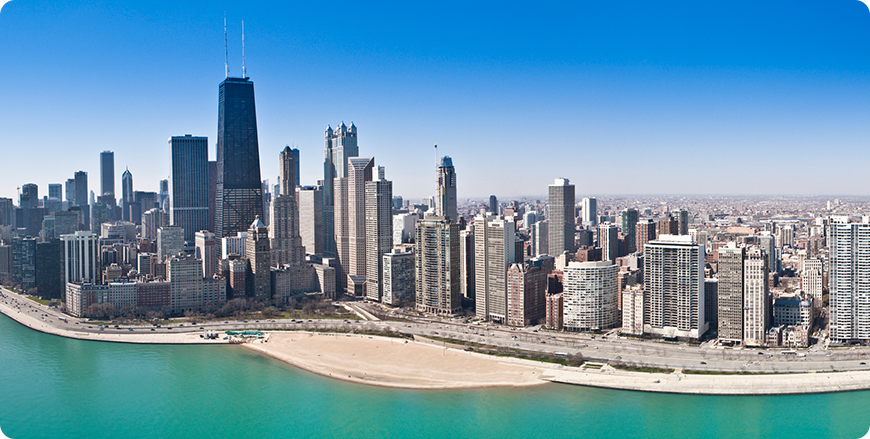The Centers for Disease Control and Prevention (CDC) estimates over 300,000 older people seek medical treatment for hip fractures annually. This large number of hip injury patients makes discussions about post-injury and post-treatment care necessary.
One of the concerns people with hip injuries have is the impact of the winter season on their condition. Will they feel more pain and discomfort? Will the chilly weather affect their recovery and slow down healing? These are valid questions that we address in this blog.
The Science Behind Joint Pain During Cold Weather
You may have heard your grandparents or older neighbors say they can predict bad weather because they can “feel it in their joints.” It’s because there is a correlation between the weather and joint pain. In a study that observed older people with osteoarthritis in six European countries, 67% of respondents said the weather affected their pain. Weather-sensitive participants, in particular, reported feeling more pain in cold weather.
How does this happen? According to the results of a double-blind study on 92 patients with rheumatoid disorders, climatic and meteorological variables exacerbate joint pain. These variables are barometric pressure (pressure of the air), humidity, and temperature, all of which have some effect on recovering and healing injuries.
The location of a patient’s residence can also increase sensitivity to pain during cold weather. An early study has found that patients who come from mild climates experience more weather-related pain than patients from cities known for having chilly weather most of the year.
Here are more theories as to how the cold weather affects people with hip injuries:
- For people with worn-out cartilage in their hip joints, the nerves are more easily exposed and, therefore, become more sensitive to pressure changes.
- Barometric pressure fluctuations may cause scar tissues to contract and expand. Scar tissue contracting during winter can make it harder and painful to move those affected areas.
- The lower the temperature, the thicker the fluids inside the joints become, making these areas stiffer.
- The body’s natural response to cold weather is to regulate the core temperature. This process reduces blood flow to the arms and legs, reducing the heat in the extremities (hence, our toes and fingertips feel cold first) and increasing their sensitivity to the cold.
- Activities become limited during winter because everyone wants to stay warm indoors and avoid going out unless necessary. The unexercised muscles and tendons become stiffer and less elastic, exacerbating existing hip injuries.
There’s still room for more research on the link between weather and joint pain. However, for many people with hip injuries, flare-ups during winter are a very real experience.
What People With Joint Injury May Experience in Winter
The pain and discomfort from a hip joint injury don’t go away even after it has healed. This is primarily because of scarring and any permanent changes in the hip anatomy, like some cartilage being removed and the addition of a metal or plastic implant. As such, people who’ve had hip injuries may experience the following:
- The scars will feel tight and pull on the skin and muscles around them.
- It will become harder to walk or move the affected hip because of the contracting scars and muscles.
- People with hip replacement surgery may feel pain in the implant site.
- The pain level varies from slight discomfort to sharp pain that keeps one up at night.
People with hip injuries must take extra care during winter because the affected areas become more prone to damage. Stiff muscle tissue is more likely to tear or get injured than warmed-up muscle tissue. On that note, let’s discuss how to avoid or reduce hip joint pain when the temperature gets colder.
How To Avoid Hip Injury Pain in Winter
Knowing how the cold weather impacts hip injuries and the causes of the associated pain, here are some tips on avoiding pain and discomfort and promoting continued healing of injured hip joints during the winter season.
- Stay Warm: The Arthritis Foundation and the American College of Rheumatology recommend heat therapy to relax stiff joints in the morning, a common occurrence in winter. Local heat application works the best, so you might consider bringing a hot water bottle or compress when you go to bed or anytime your hip joints feel stiff. However, there are exceptions to heat therapy. If your hip pain is due to an acute injury or flare-up, a cold compress will be more relieving than keeping your body warm.
- Exercise: Resist the urge to be inactive. A study published in the journal BMC Musculoskeletal Disorders showed that people with hip and knee osteoarthritis are likely to skip physical therapy when the weather is cold. Since many research studies have proven that exercise is beneficial for hip osteoarthritis, continue exercising indoors and keep your hip joint moving. Consider investing in a stationary bike or treadmill. You’ll get the gentle exercise you need in winter and throughout the year.
- Move Around: Exercise only takes an hour on average, so you must keep moving throughout the day. Avoid sitting still for hours and find something to do, even if it’s just walking around the living room, putting away clean laundry, or tidying up a room.
- Drink Lots of Water: When dehydrated, the body will pull water where it can to fulfill the needs of critical biological processes. Since the joint cartilage has lots of fluid, it will be one of the first areas the body will draw water from. This can make hip joints feel tighter and stiffer. Dehydration is a legitimate risk during winter because we are predisposed to feel less thirsty during the colder season. Researchers from the University of New Hampshire found that exposure to cold can reduce thirst by 40%.
Joint pain and discomfort are unavoidable for most people who have had hip injuries. Thankfully, they are manageable with the simple tips given above. Stay informed and proactive regarding your health, and the freezing temperature won’t stand in your way of recovering from a hip injury and enjoying the winter season.
For more information on hip pain remediation and injury care, consult Dr. Benjamin Domb, M.D., a board-certified orthopedic surgeon and certified independent medical examiner (ABIME). You may schedule an appointment at our clinics in Illinois or Indiana. Call (833) 872-4477 or request an appointment online.

